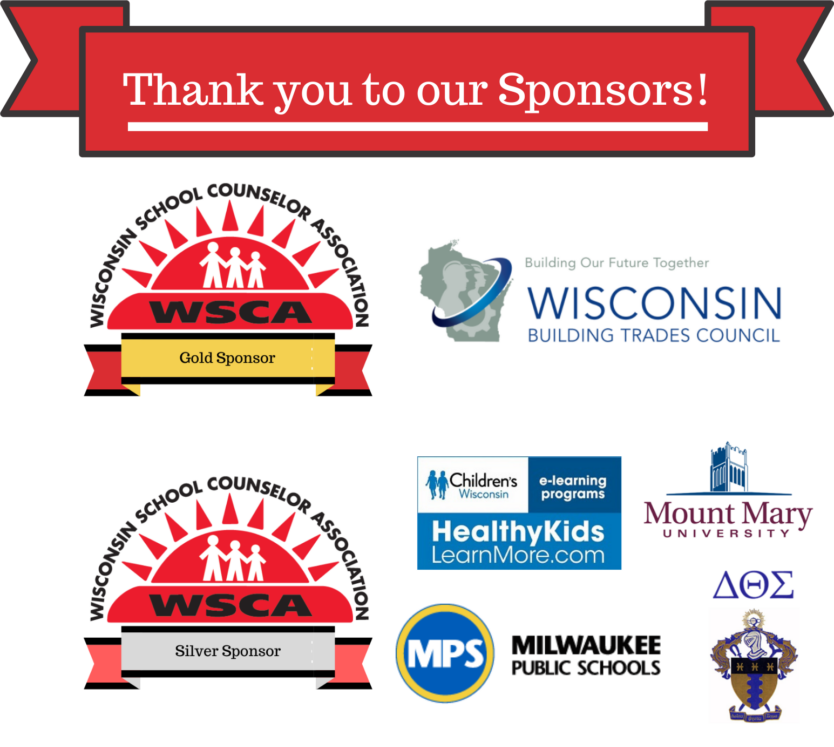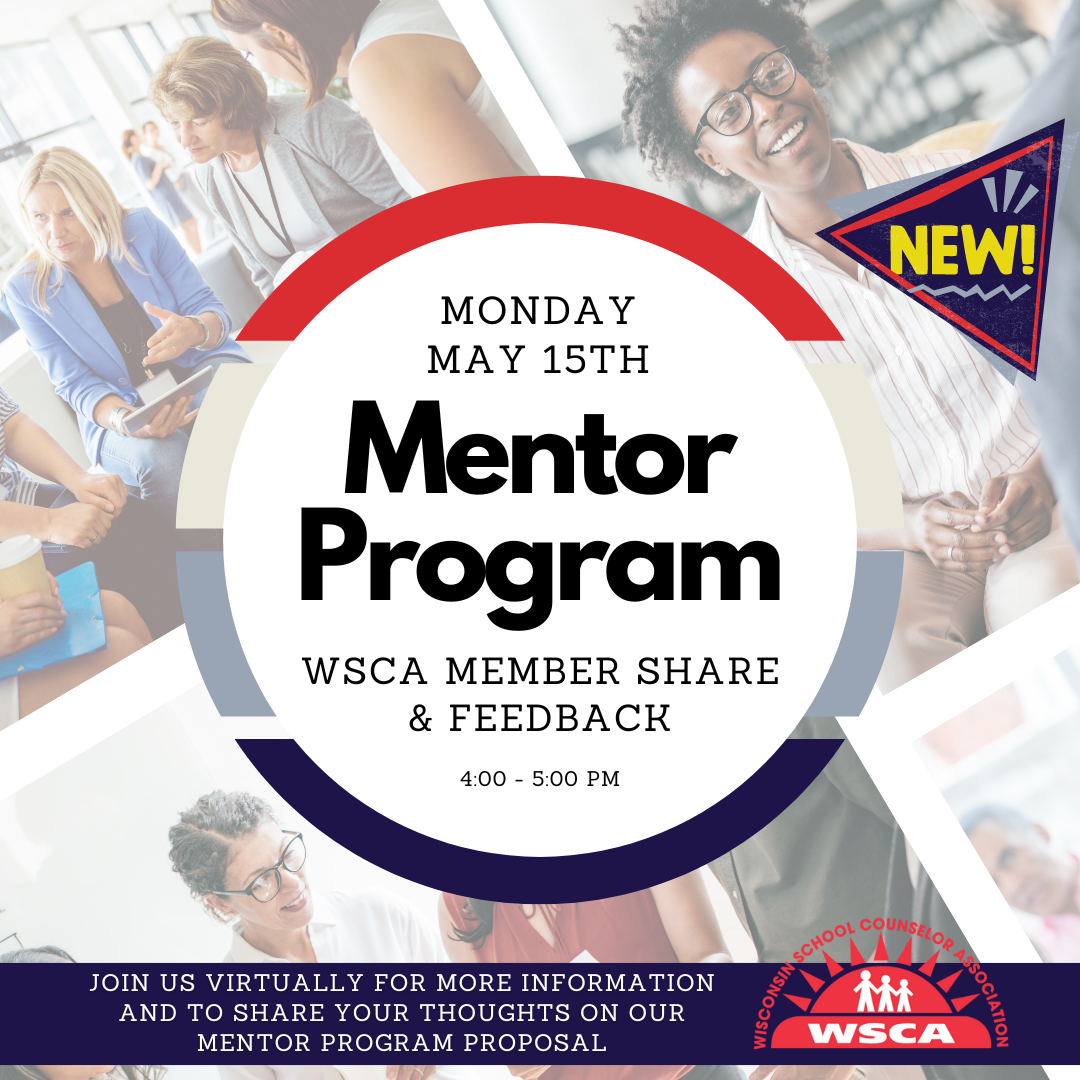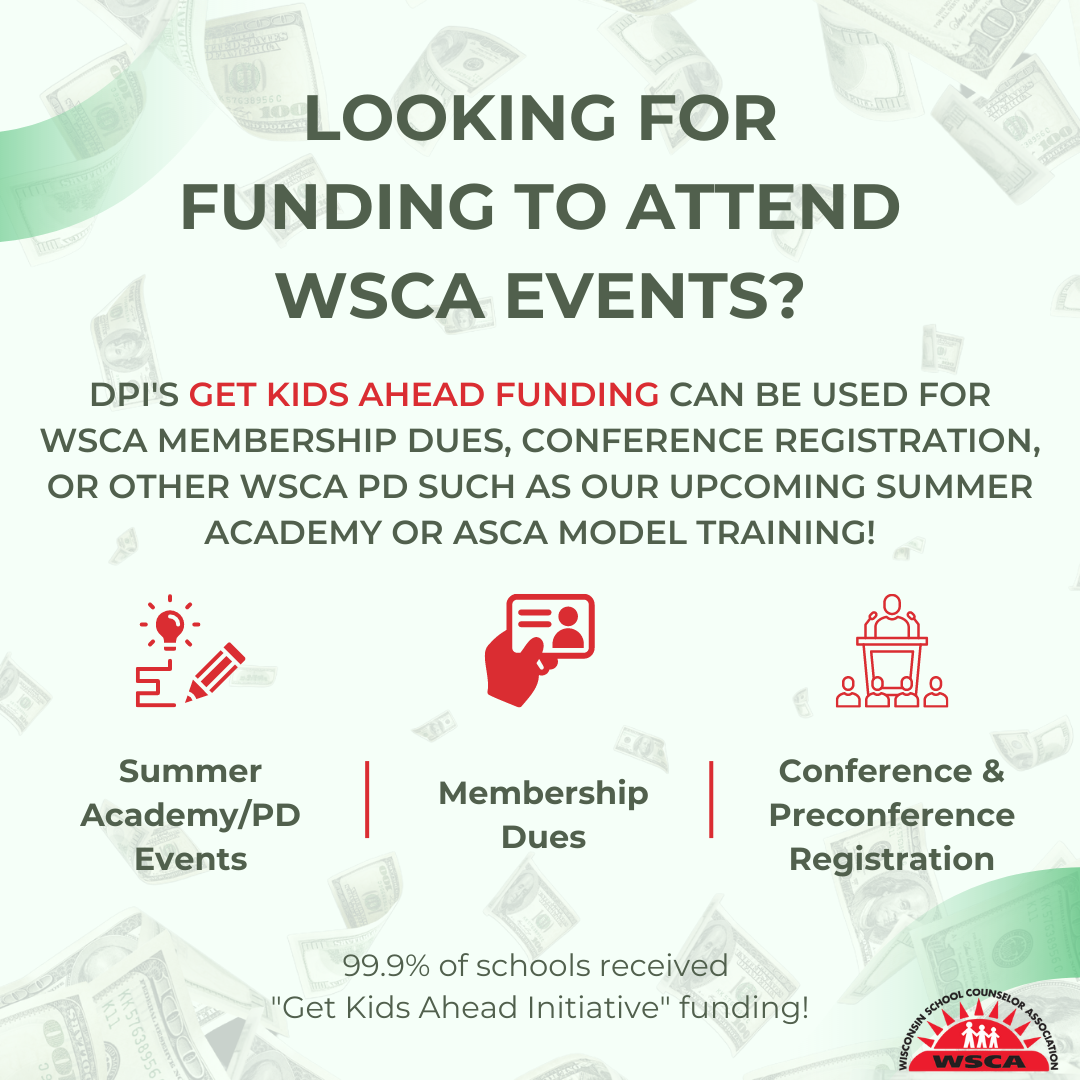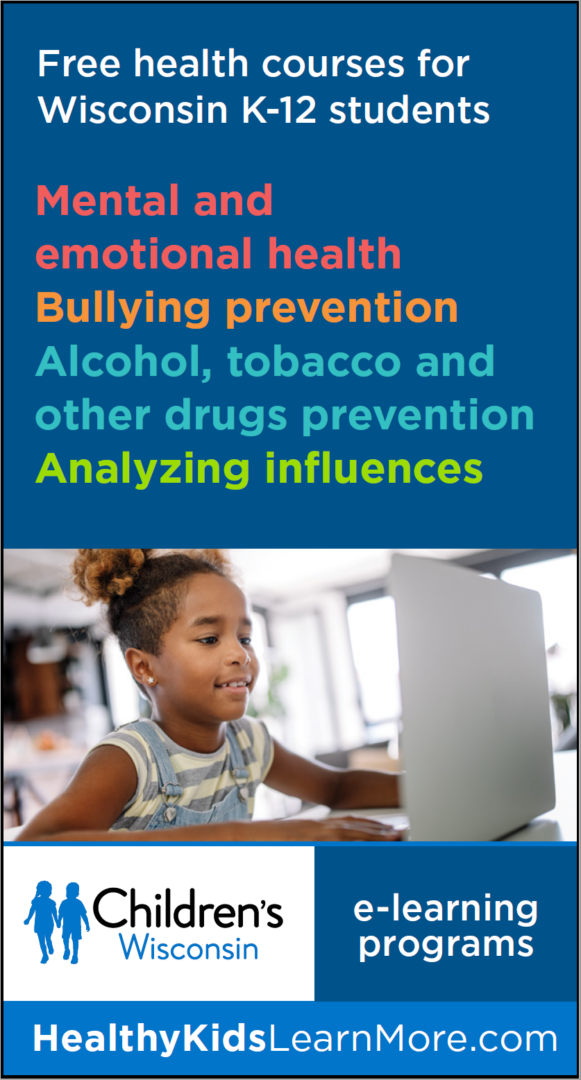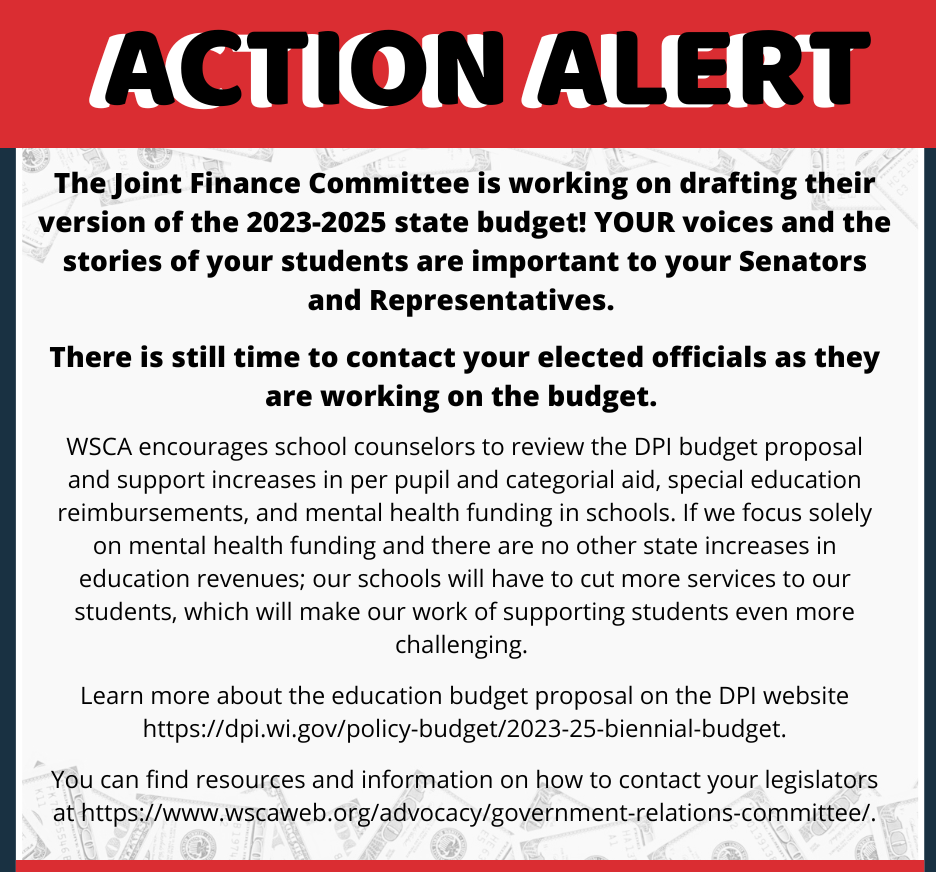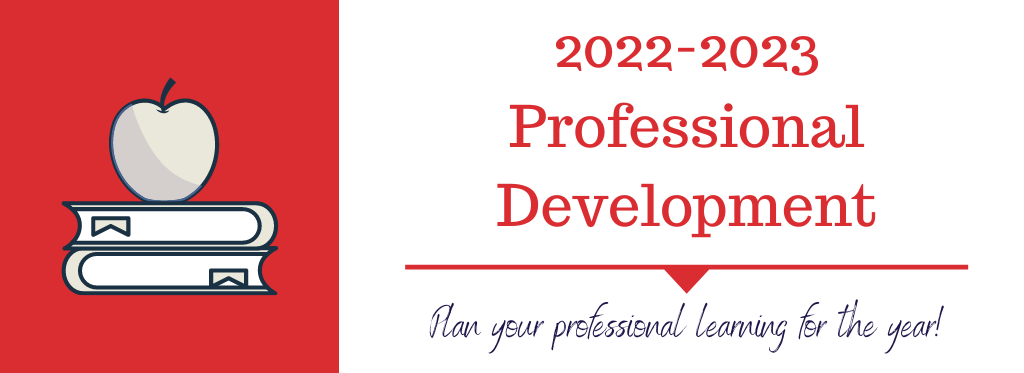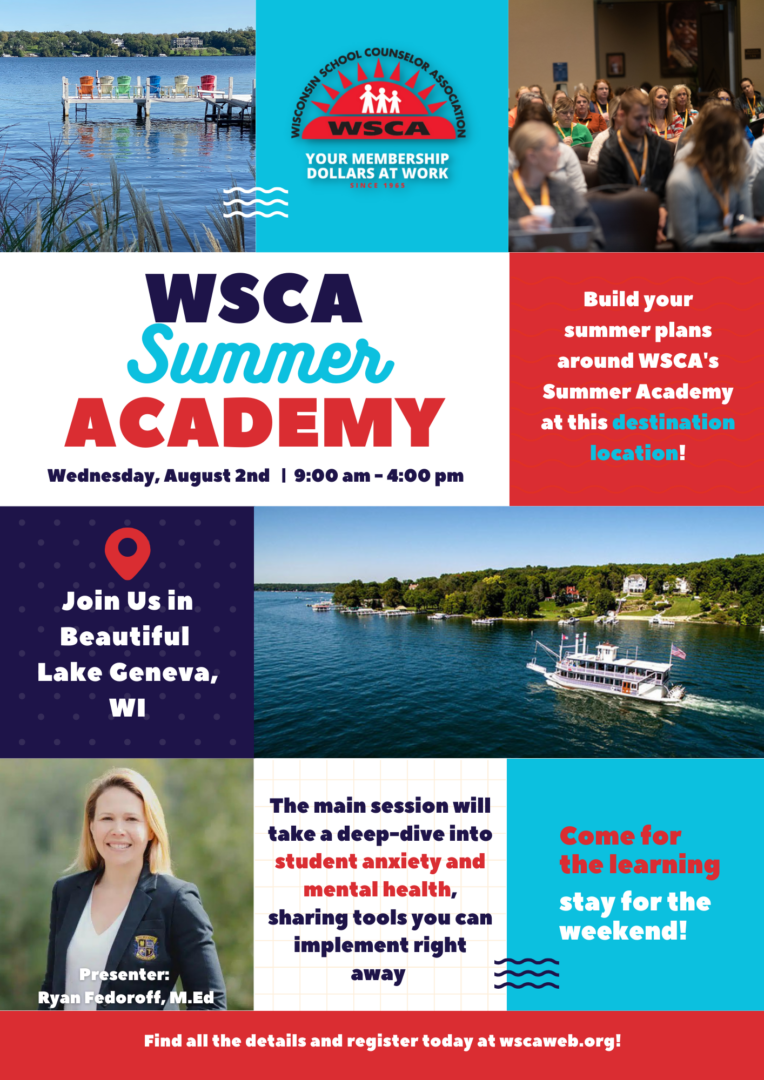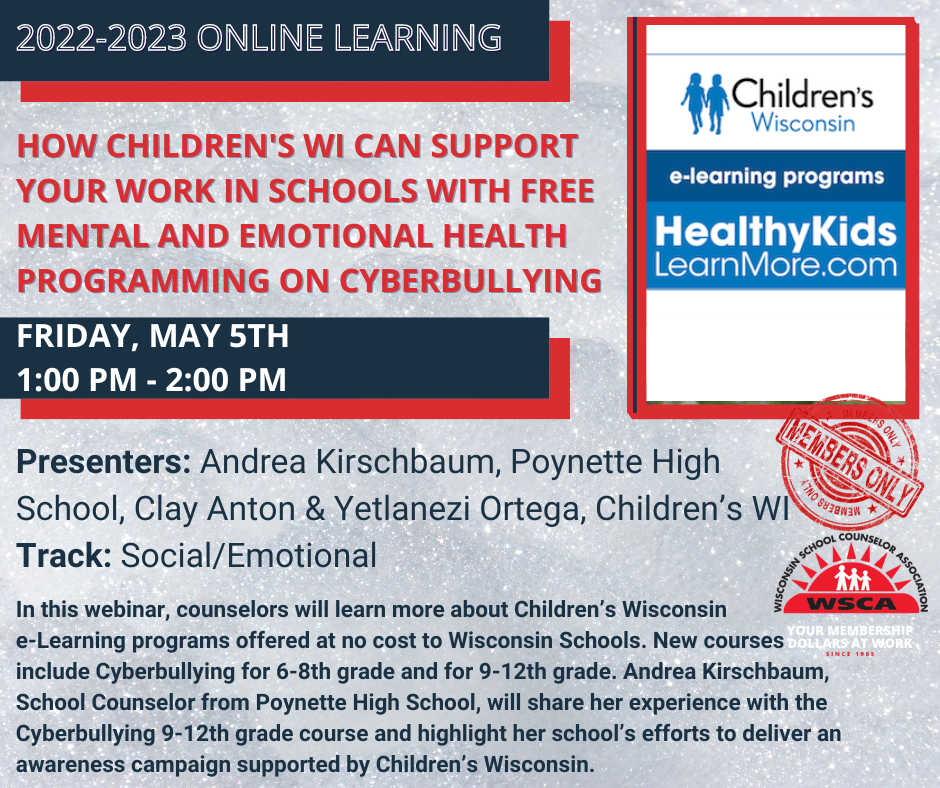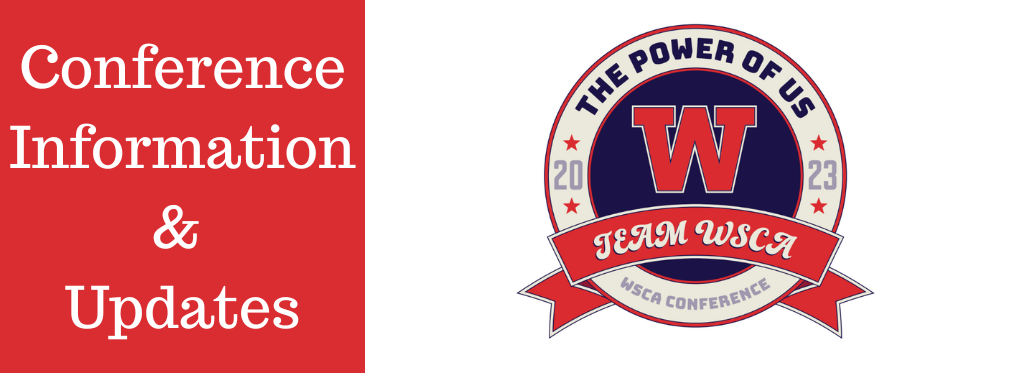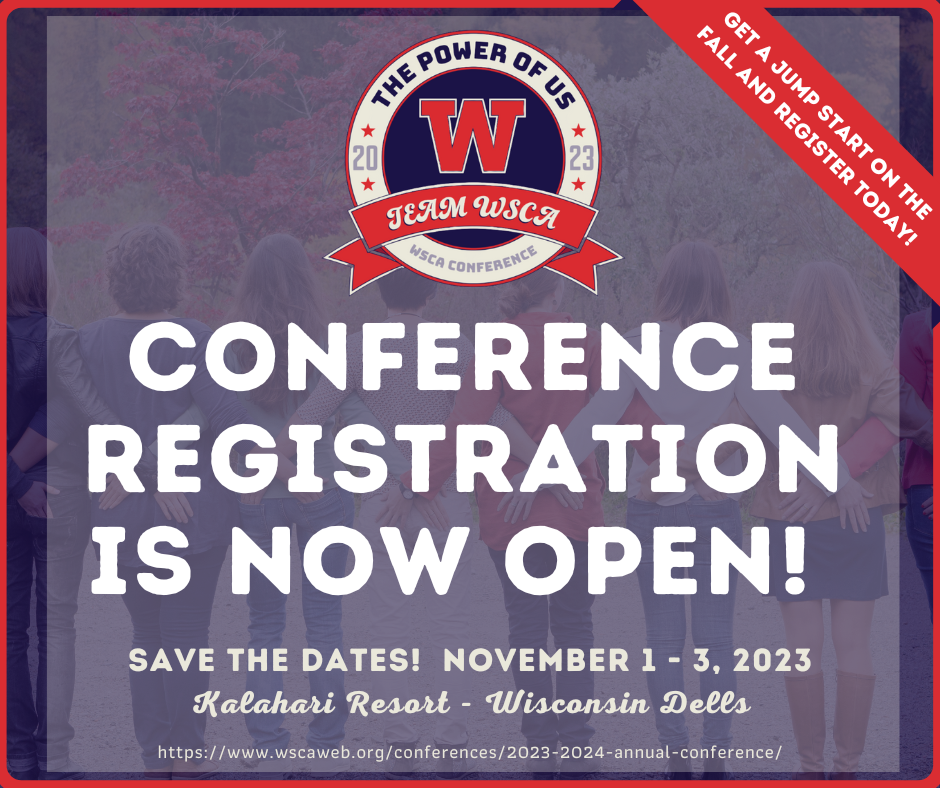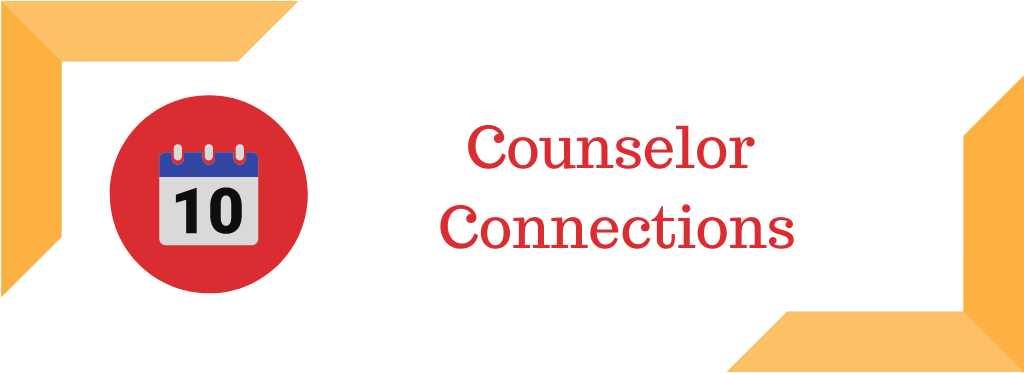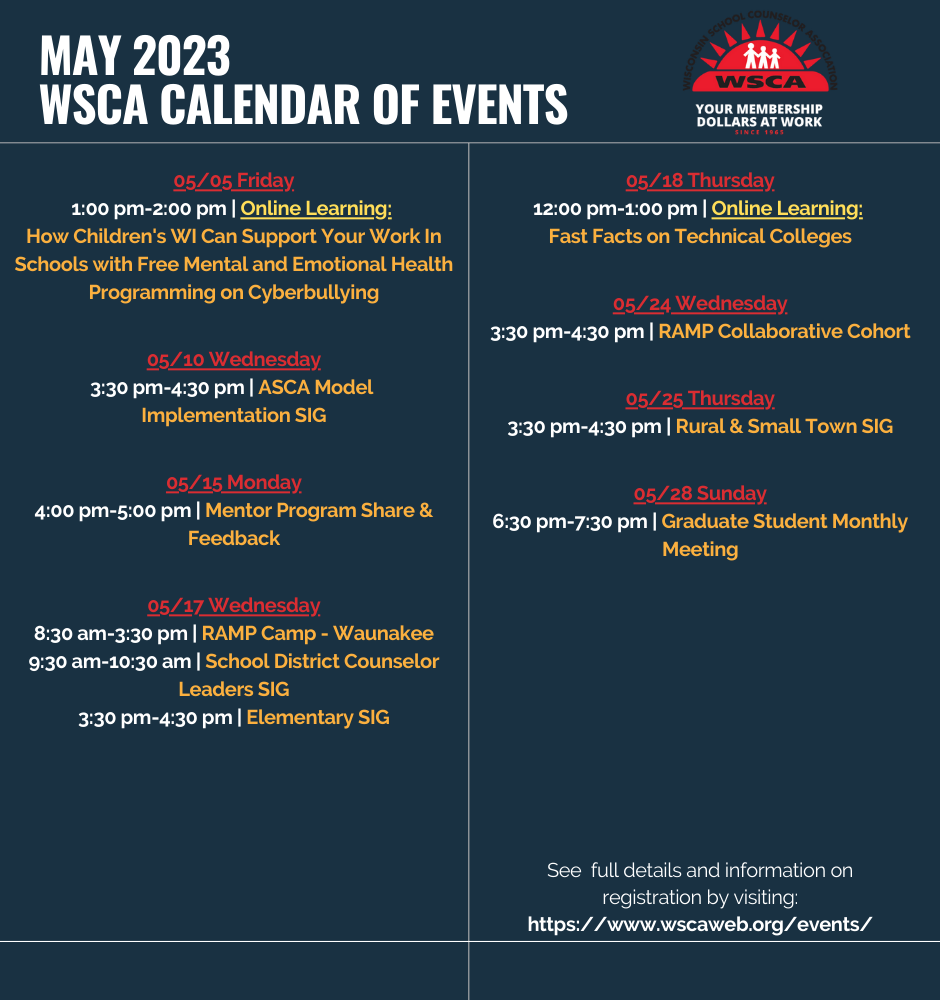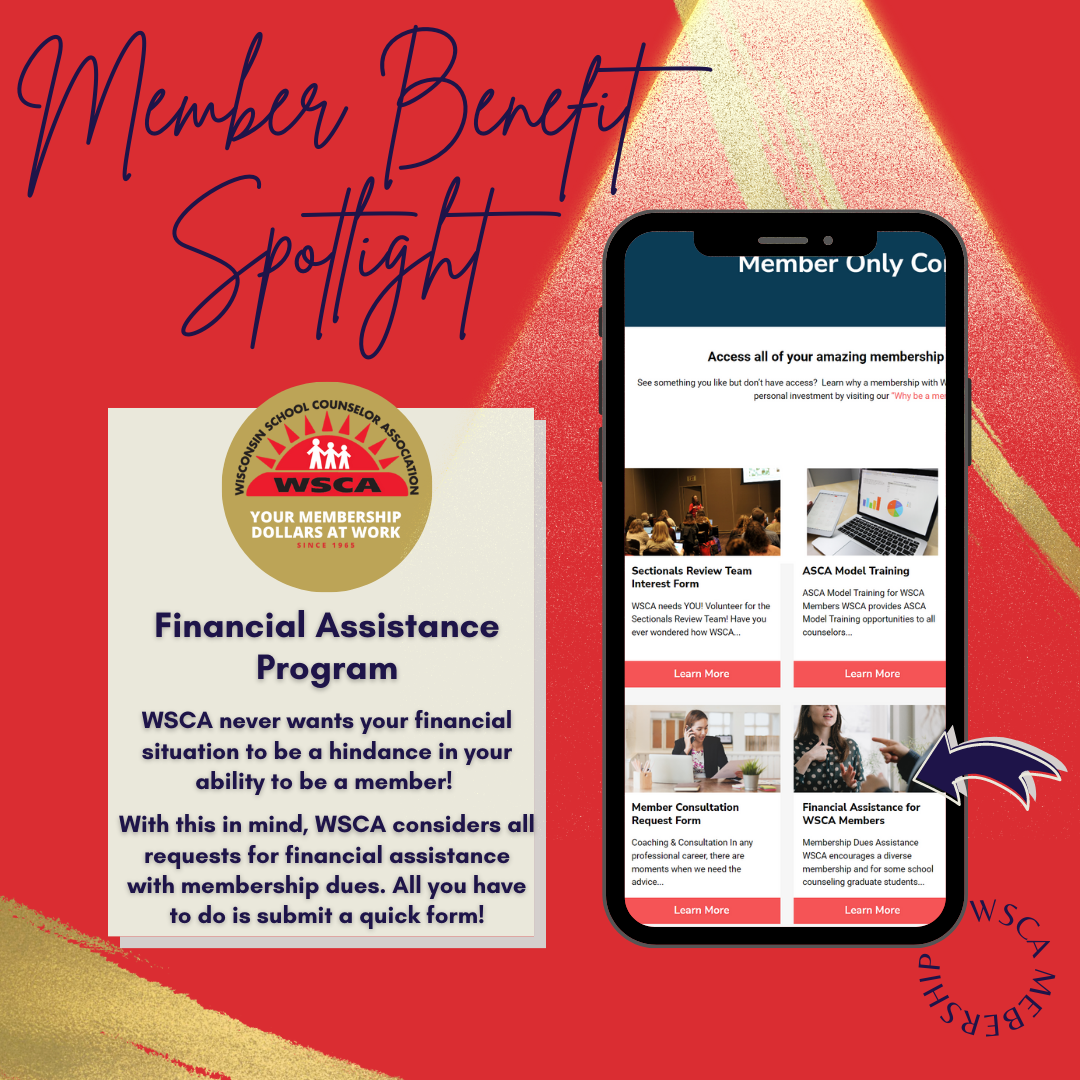May 2023

A Message from the WSCA Executive Director

Dear WSCA Members,
Recently, I was calculating the number of days that I have traveled more than 90 minutes from my home or had to stay overnight for my work with WSCA and discovered that I have spent over 11 weeks of my time this year across the state with all of you! Your stories, humor, resilience, persistence, and commitment to doing your best to help your students inspires me and keeps me going! Thank you for welcoming me and your willingness to share your realities as well as hopes and dreams for what you would like for your school counseling programs. Without all of you, there would be no WSCA. You are the ones that help us understand the needs you see in your communities. You are the ones that take those few extra minutes to fill out our surveys, and you are the ones that volunteer to help us select amazing sectional presentations and make the hard decisions on professional recognition awards. Know you are making a difference not only for your students but also for the profession of school counseling.
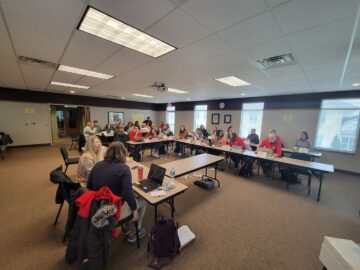 In late April, the WSCA leaders gathered to plan for 2023-2024. Also joining us was the 6th cohort of Leadership Academy. We have not had a group of WSCA leaders that large gathered in one place since pre-COVID, and it was absolutely amazing! The energy, hope, laughter, curiosity, and passion for school counseling was off the charts.
In late April, the WSCA leaders gathered to plan for 2023-2024. Also joining us was the 6th cohort of Leadership Academy. We have not had a group of WSCA leaders that large gathered in one place since pre-COVID, and it was absolutely amazing! The energy, hope, laughter, curiosity, and passion for school counseling was off the charts.
Unfortunately, April is also a time when we say farewell to our leaders ending their terms. These leaders have been committed to WSCA during some of the most challenging times in their professional careers. It is hard to put into words how much their dedication and support have impacted our ability to keep moving forward. Join us in thanking the board members and directors ending their terms:
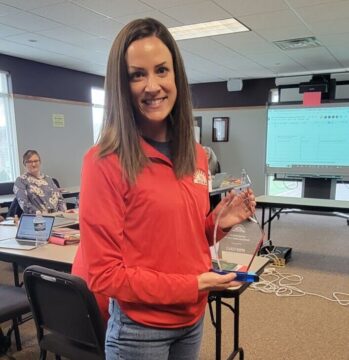 Carly Roth (3 years) has juggled a family with very young children while leading several board committees. Her ability to keep her committee focused and very efficient was next to none! Carly, your quiet leadership and thoughtfulness will be greatly missed.
Carly Roth (3 years) has juggled a family with very young children while leading several board committees. Her ability to keep her committee focused and very efficient was next to none! Carly, your quiet leadership and thoughtfulness will be greatly missed.
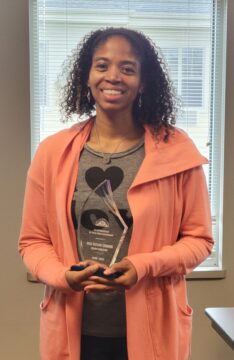 Mia Tatum-Crider (3 years) is always willing to jump in and help! Her passion and enthusiasm for making sure WSCA is keeping a focus on equitable outcomes for all students by intentionally creating systems and supporting subgroups of students, especially BIPOC, has been so important. Mia is a favorite at conference for helping counselors understand how we can address equity and has taken this message to the ASCA conference as well. Through her time on the WSCA board, she has also been working on her Ph.D. and busy with a young family. Mia, thank you, thank you, thank you for all you have done for WSCA; we will miss your voice.
Mia Tatum-Crider (3 years) is always willing to jump in and help! Her passion and enthusiasm for making sure WSCA is keeping a focus on equitable outcomes for all students by intentionally creating systems and supporting subgroups of students, especially BIPOC, has been so important. Mia is a favorite at conference for helping counselors understand how we can address equity and has taken this message to the ASCA conference as well. Through her time on the WSCA board, she has also been working on her Ph.D. and busy with a young family. Mia, thank you, thank you, thank you for all you have done for WSCA; we will miss your voice.
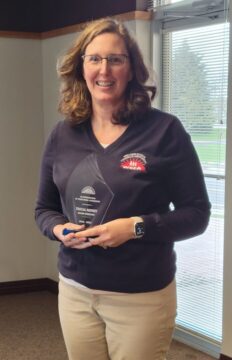 Tricia Norby (7 years) is our longest-serving board member in recent history. She has developed into a policy guru and taken on the role of Board Chair and Assistant Board Chair. Tricia is leaving a legacy for the WSCA board through her commitment and dedication to working through the tedious process of creating policies and systems for policy governance that will allow the board to have time to engage in future-focused visioning and member connections. The technical components are now in place so future boards can have all the fun of discussing the hopes and dreams for the future of school counseling. Thank you for always being there.
Tricia Norby (7 years) is our longest-serving board member in recent history. She has developed into a policy guru and taken on the role of Board Chair and Assistant Board Chair. Tricia is leaving a legacy for the WSCA board through her commitment and dedication to working through the tedious process of creating policies and systems for policy governance that will allow the board to have time to engage in future-focused visioning and member connections. The technical components are now in place so future boards can have all the fun of discussing the hopes and dreams for the future of school counseling. Thank you for always being there.
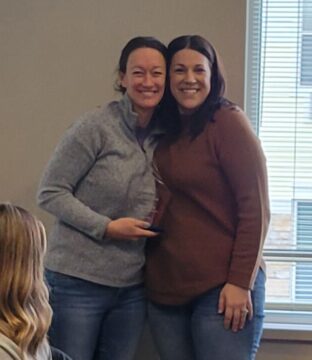 A huge thank you to Sarah Flier (3 years), the WSCA Data & ASCA Model Director, who spent countless hours creating on-demand videos to support counselors with model implementation, supported the vision of aligning the WSCPAR closer to the ASCA model, and has taken her personal days to help train counselors on the ASCA model. Sarah was a national school counselor of the year finalist, showcasing all the amazing things happening in Wisconsin. Sarah is sought out at the WSCA conference for her engaging sectionals and has presented multiple times at ASCA. Thank you for your leadership and for helping put Wisconsin on the map, Sarah!
A huge thank you to Sarah Flier (3 years), the WSCA Data & ASCA Model Director, who spent countless hours creating on-demand videos to support counselors with model implementation, supported the vision of aligning the WSCPAR closer to the ASCA model, and has taken her personal days to help train counselors on the ASCA model. Sarah was a national school counselor of the year finalist, showcasing all the amazing things happening in Wisconsin. Sarah is sought out at the WSCA conference for her engaging sectionals and has presented multiple times at ASCA. Thank you for your leadership and for helping put Wisconsin on the map, Sarah!
I can’t wait to get to know more of you and your leadership journeys. You are never alone; WSCA is all of us!
~Stacy
A Message from the WSCA Board of Directors

Hello WSCA members!
I see it! The light at the end of the tunnel! The school year is almost over, and like many of you, I am looking forward to some time off. I’m also starting to plan for my next school year. During the April Board Meeting, the Board also started planning our next year. How can we connect with our members? In what areas do we need further education? Is the organization headed in the right direction?
We spent a lot of time over the past year getting input from school counselors across the state. Some of you feel that things are finally starting to feel ‘normal’ after the years of Covid chaos. We are also hearing that mental health needs are higher than they have ever been. I’m guessing in direct relation to this, AODA issues are peaking as well. Counselors are still hoping for better ratios, but not at the cost of increased non-counseling duties. Uninterrupted time is still hard to come by, and as a result, our days tend to be reactive vs. proactive. Counselors are still advocating for equitable treatment for all while also advocating for our positions, some of which may end if grants aren’t renewed and/or the state budget doesn’t fully support education and mental health. WSCA hears you!
If you need more support, reach out! There are SIG groups, consultation opportunities, training (virtual and in person), and a lot of volunteer opportunities. After seven years on the board, I can honestly say that I have received just as much as I have given. While I am stepping down from my position on the Board, I will continue to support WSCA and its mission of advocacy, leadership, and support for its members.
Sincerely,
~Tricia Norby
The “Get Kids Ahead Initiative” provides one-time funding to all public and independent charter schools in Wisconsin to help build Comprehensive School Mental Health Systems (CSMHS) in their schools and districts.
Click here to find out how much funding your district received

Feature Article – Creating Supportive Environments for our LGBTQ+ Students: Just One Accepting Adult!
Creating Supportive Environments for our LGBTQ+ Students: Just One Accepting Adult!
Molly Herrmann
WI Department of Public Instruction
Youth who are LGBTQ+ are experiencing a crisis exacerbated by isolation, stigma, judgment, harassment, and bullying. According to the 2021 Youth Risk Behavior Survey, Wisconsin LGBTQ+ students are more likely to experience anxiety, depression, thoughts of suicide, and suicide attempts than their peers. Nearly half of LGBTQ+ youth have considered suicide and over 20% have attempted suicide (WI DPI, Youth Risk Behavior Survey, 2021). It’s a wildfire that adults must address.
Adults in the lives of LGBTQ+ students have an opportunity and responsibility to be trusted and supportive people in their lives. According to the Trevor Project’s 2019 National Survey on LGBTQ Mental Health, LGTBQ+ youth who have just one accepting adult in their life can reduce the risk of a suicide attempt by 40%. When we support young people who are a part of historically marginalized populations, we first let them know they have an adult to speak up for them and talk through challenges. We also let their peers know there is a trusted adult around. Finally, we send a message to other young people that discrimination, bullying, and harassment will not be tolerated; we model inclusion, belonging, and acceptance.
Ways to show up for LGBTQ+ students are numerous and support the lives of all students. LGBTQ+ youth are in classrooms, after school clubs, the library, our families, and our kids’ friend groups. In any of these settings, we can show inclusion in ways that range from subtle to overt. To create a supportive environment, adults can promote inclusion with language. The pervasiveness of heteronormative, binary language creates many opportunities to infuse interactions with inclusive language. For example, instead of “ladies and gentlemen” or “boys and girls,” adults can use words like “friends,” “students,” or “learners.” Outside of school, we can make a habit of using “folks” or “you all.” Young people regularly hear comments or questions with assumptions of heterosexuality, such as asking about boyfriends or girlfriends, particularly at a young age. Breaking these habits creates more inclusive environments. Other ways to show inclusion range from sharing family stories in classroom projects, to reading inclusive texts, to interrupting anti-LGBTQ+ bullying and harassment, to wearing rainbow lanyards, badges, or other visible signs that an adult is supportive.
The power of believing young people when they tell us who they are cannot be over emphasized. Youth figuring out their identity seek out adults they trust. That adult may be the first person they have told. We can show support by thanking them for trusting us, asking what kind of support they need, and if they share them with us, using their requested names and pronouns. Youth who did not have their pronouns respected attempted suicide twice as often as peers who did have their pronouns respected (Trevor Project, National Survey on LGBTQ+ Youth Mental Health, 2021). Always center the student in deciding on next steps. They will know who the other supportive people are in their lives. The goal is to increase those who support the young person until there are adults in every setting – home, school, work, and with friends – who foster a sense of belonging and help them safely navigate these spaces. LGBTQ+ youth need adult support to survive and thrive.
You Spoke, We Listened
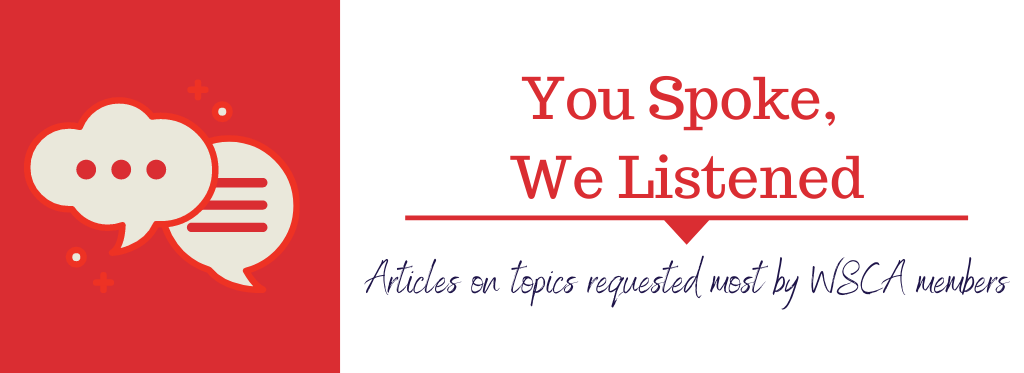
![]()
Free Resources for States and Districts to Support School Improvement
The US Department of Education offered a State Support Network technical assistance initiative from 2016 to 2020 that was designed to support state and district school improvement efforts.
During its four years of operation the State Support Network brought states and districts together with technical assistance providers and subject matter experts to use research and resources to analyze practical challenges and develop strategies for supporting schools. Check out their site to learn more about State Support Network communities of practice and to access free resources for states and districts to support school improvement.
https://oese.ed.gov/resources/oese-technical-assistance-centers/state-support-network/resources/
![]()
Participate in National Prevention Week
The Substance Abuse and Mental Health Services Administration (SAMHSA), Center for Substance Abuse Prevention (CSAP), invites you to join them during National Prevention Week from May 7–13, 2023. National Prevention Week is a national public education platform showcasing the work of communities and organizations across the country dedicated to raising awareness about the importance of substance misuse prevention and positive mental health.
The week will showcase the work of communities and organizations across the country dedicated to doing more than raising awareness and highlighting the work being done in the areas of substance misuse prevention and positive mental health. The webinar series culminates on Friday, May 13, with a panel discussion on “Many Pathways to Children’s Mental Health.” Register for free webinars and find additional resources at https://www.samhsa.gov/prevention-week
![]()
FAFSA Updates and How It Will Impact Your Students
The Department of Education announced that the updates to the FAFSA have impacted the application timeline. Instead of being available on October 1, 2023, the Department shared that the FAFSA will open in December of 2023.
You can learn more about “FAFSA Simplification” at https://financialaidtoolkit.ed.gov/tk/announcement-detail.jsp?id=better-fafsa-better-future
The DOE has also created a 2024–25 FAFSA Roadmap for external partners (i.e., school counselors) that outlines when you can expect resources and materials to be available to share with students and families. Check the Roadmap out here https://fsapartners.ed.gov/knowledge-center/topics/fafsa-simplification-information/2024-25-fafsa-roadmap
Legislative Updates
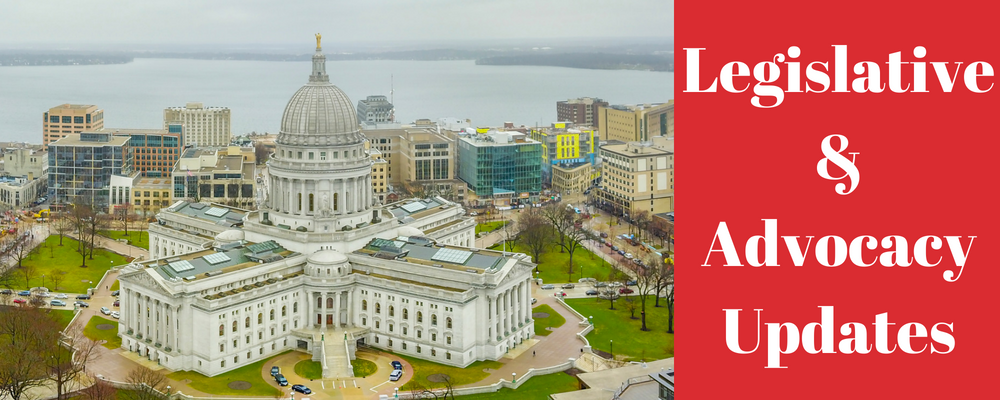
Learn more about the education budget proposal and how you can get in touch with your legislators by visiting our Government Relations webpage.



